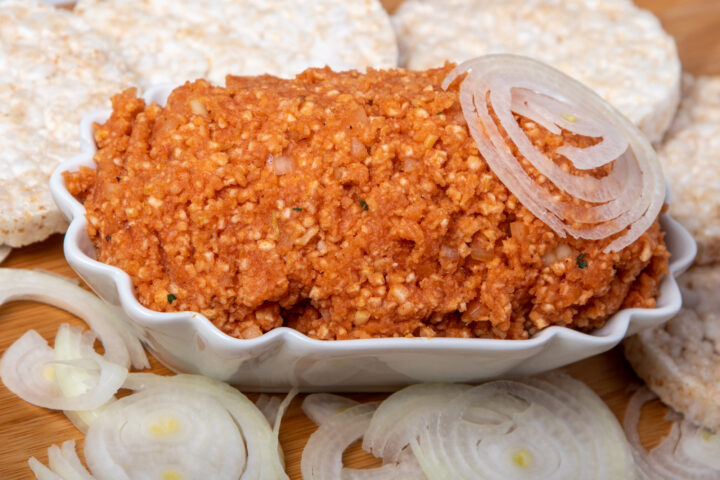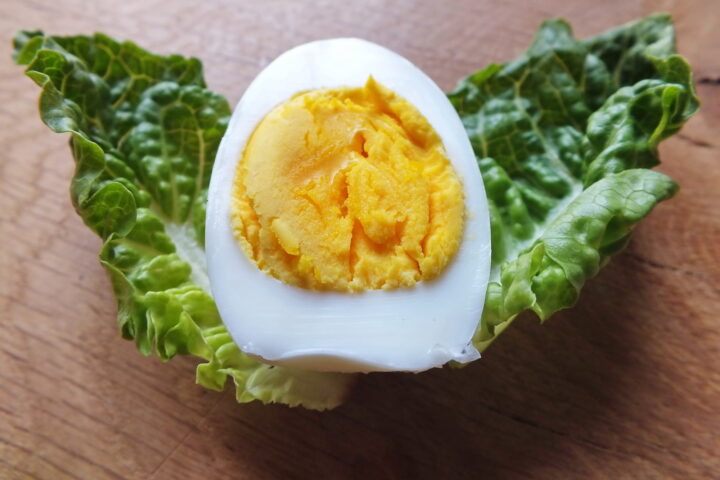
Protein yes – vegan? Probably not.
After years of hype surrounding meat alternatives, enthusiasm for vegan diets seems to be waning. More and more restaurants are returning to meat. Consumers are also placing greater emphasis on pragmatism rather than sacrifice.
Friday, November 7, 2025
Just a few years ago, meat substitutes were booming. Whether tofu, soy strips or chickpea balls – the range of vegan and vegetarian alternatives was mushrooming. Supermarkets, restaurants and start-ups were outdoing each other with new ideas for plant-based nutrition.
As the Tages-Anzeiger newspaper now reports, this boom seems to be over. ‘Saving the world? Who cares?’ was the headline in the Sonntagszeitung newspaper: elitist veganism has had its day. A symbol of this change is the world-famous Eleven Madison Park restaurant in New York. Chef Daniel Humm, a Swiss national, had completely converted his Michelin-starred restaurant to vegan cuisine in 2021. But now he is returning to meat. From October, fish and meat dishes will be back on the menu. ‘A purely plant-based kitchen is not profitable,’ Humm told the New York Times.
The trend is reversing
Many see this as a fundamental shift. In London, numerous vegan restaurants have recently been forced to close. And the figures also show that meat consumption is on the rise again. After falling from 58 to 46 kilograms per capita per year in Switzerland since 2005, it rose again for the first time in 2024. Meat consumption now stands at almost 50 kilograms per capita per year. At the same time, the proportion of people who eat a meat-free diet is stagnating. In the five largest countries in Europe, it stands at around 12 per cent. Of these, 10 per cent are vegetarian and 2 per cent are vegan.
Food researcher Gunther Hirschfelder sums it up in the Tages-Anzeiger newspaper: ‘The revolutionary fire of veganism has been extinguished.’ Issues such as animal welfare and climate change are still important, he says, but many consumers have moved away from moral pressure. Instead of dogma, pragmatism counts today. The younger generation is focusing on so-called ‘smart eating’ – a balanced, individually tailored diet instead of strict rules of abstinence. The trend towards a more protein-rich diet is also having a positive effect on the milk market, as Stefan Arnold from Swiss Milk Producers (SMP) notes in the BauernZeitung: ‘The health trend around fitness, muscle building and conscious nutrition is boosting milk consumption.’
An emotional topic – even in Switzerland
The latest Green Sofa Live event in Bern showed just how emotional the topic of meat still is. Under the title ‘Can Switzerland go vegetarian?’, experts discussed the future of our diet. They also talked about Franziska Herren's popular initiative ‘For a secure food supply’. The initiative calls for a plant-based diet with a high degree of self-sufficiency. However, scepticism was palpable among the audience. Many clearly rejected coercion or paternalism, or doubted the possibility of adequately protecting protein crops, some of which are sensitive.
Whether meat or veggie patties, it's ultimately a matter of personal preference. One thing is clear: there are no easy solutions. A sustainable diet must not only be ecological, but also resource-efficient and affordable for consumers. Because real change can only succeed if it works in everyday life.
Sausage is not just sausage – Labelling in the EU and Switzerland
In Switzerland, the Federal Supreme Court decided in May 2025 that plant-based meat alternatives may no longer carry animal designations such as 'chicken,' 'pork,' or 'Güggeli.' Such terms are considered misleading, even if the packaging clearly states that the product is plant-based. Generic terms such as 'steak,' 'cutlet,' or 'fillet' remain permitted, as do established fantasy names like 'gummy bear' or 'cat’s tongue.'
In the European Union, this topic has also recently sparked debate: In October 2025, the European Parliament narrowly adopted a position in favour of banning such designations for plant-based products. Supporters argue it is about consumer protection and clarity for farmers. However, the measure is not yet legally binding – the final regulation will depend on further negotiations between Parliament, the Commission, and the Member States.
Sources
Kindly note:
We, a non-native editorial team value clear and faultless communication. At times we have to prioritize speed over perfection, utilizing tools, that are still learning.
We are deepL sorry for any observed stylistic or spelling errors.
Related articles

Vegan alternatives thanks to genetic engineering
How can we feed a growing global population in a sustainable way? The answer increasingly lies in laboratories and genetic engineering. Whether it's lab-grown milk, vegan squid or farmed salmon – genetic engineering is everywhere. It's high time to dispel the old myths.

Meat alternatives still too expensive
Meat substitutes are being prominently advertised during "Veganuary". However, these are often much more expensive in the store than the original products made of real meat.

The search for the egg of the future
Boiled, stirred, fried: Eggs are not only popular at Easter. At the same time, there is increasing interest in alternatives to the animal protein products that are common in our country. The search for new protein sources therefore does not stop at chicken eggs. The "egg substitute" can come from exotic jellyfish, as well as from a wide variety of plant sources. The result: The demand for protein-rich crops is growing.

How our daily lives end up in the water
When residues in our waters are discussed, agriculture is often portrayed as the main culprit. Yet a closer look shows that the sources are diverse and often much closer to everyday life than assumed.

New Breeding Methods at a Crossroads
It will soon become clear whether plants developed through modern genomic breeding techniques will be allowed to be cultivated in European fields in the future. Switzerland in particular would be well advised to at least keep an eye on decisions made in Brussels in order not to fall behind.

Why Strict GMO Regulation Stifles Innovation
New breeding techniques such as CRISPR-Cas are considered key to developing resilient crops, stable yields and reducing the need for plant protection products. ETH professor Bruno Studer warns that overregulating these technologies strengthens precisely those large agricultural corporations that critics seek to curb, while excluding smaller breeders and start-ups from the market.

A Superfood with Benefits and Challenges
Sweet lupin is Biovision’s “Superfood of the Year 2026.” It delivers high protein content, improves soils and supports biodiversity. Yet a closer look at agricultural practice shows that without breeding, crop protection and innovation, even this superfood remains a challenging crop.

